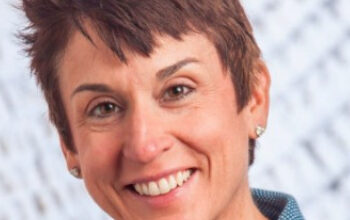Council wants tourism board to make case for raising room tax
Published 12:00 am Wednesday, December 2, 2009
By Mark Wineka
Salisbury Post
City officials are still convinced that Salisbury needs more money for tourism promotion ó money that would come from doubling the hotel occupancy tax.
But Salisbury City Council resisted passing a resolution Tuesday that would ask the General Assembly to allow the city to levy a 3 percent occupancy tax and establish its own tourism development authority.
Instead, the council tabled the resolution and will wait for the Rowan County Tourism Development Authority to make its case for increasing the room tax to county commissioners.
Local legislators had indicated that a local bill on Salisbury’s behalf would not be considered in the short session anyway.
Councilman Mark Lewis said he bets county commissioners will agree that an increase in the hotel-room tax makes sense. When they are presented with the right information and a good plan, they’ll go for it, he predicted.
The whole tax issue became a controversy last week as county commissioners complained that they were not kept informed of the city’s intentions and questioned the Tourism Development Authority’s involvement in possibly helping Salisbury with a local bill.
Most of the Tourism Development Authority members are appointed by commissioners.
Rowan County currently has a 3 percent occupancy tax, which generated $303,044 last year.
Over the past couple of years, Salisbury City Council has set as one of its goals increasing that room tax from 3 percent of a lodger’s bill to 6 percent, to help improve the marketing of Salisbury and address capital needs related to tourism.
Of 840 hotel rooms in Rowan County, Salisbury has 807 of them, or roughly 96 percent.
A 96 percent share of an additional 3 percent occupancy tax would be about $290,000 a year, according to Joe Morris, Salisbury’s planning and community development manager.
Two-thirds of that money would have to be used for marketing and promotion. The remaining third could go toward tourism-based capital programs, Morris said.
In North Carolina, 85 of the 100 counties levy a hotel room tax. Morris said 21 counties have a combination city and county occupancy taxes.
Overall, 67 cities levy a hotel/motel room tax. Nearby, for example, Lexington has a 6 percent room tax; Statesville, 5 percent; and Mooresville, 4 percent.
Salisbury officials were in a hurry-up mode to hold a public hearing, pass a resolution and have legislators introduce a local bill on their behalf because the deadline for local bills in this year’s short session was today.
They solicited the help of tourism director James Meacham, who was criticized by county officials for helping the city toward increasing the tax, creating a separate tourism authority and contacting legislators.
Lewis said Meacham was unfairly taking heat for his help. Lewis said he didn’t think commissioners had to be informed of the city’s intentions.
Both Lewis, who sits on the Tourism Development Authority now, and Councilman Bill Burgin, who was on the board the previous four years, took time Tuesday to describe how the city’s decision to seek the local legislation and establish a separate tourism authority came about.
Lewis said the tourism board’s president in 2006 informally polled commissioners about raising the occupancy tax to 6 percent, and the majority said no.
If Rowan County is willing to increase the tax, “that solves the problem,” Burgin said Tuesday.
Burgin said the existing Tourism Development Authority and its staff are excellent and would be effective in promoting Salisbury’s interests without the need for a separate city tourism authority.
There would be advantages for the city to have its own separate tourism authority, Burgin said, “but I don’t see a need for that.”
Councilman William “Pete” Kennedy said he was blindsided “when I read in the paper that we were establishing” a separate tourism development authority. He said the city should work with the county on the issue, and he would not support separate legislation.
Lewis said the real question in the whole matter is why should the occupancy tax go up? Why are the additional revenues needed in Salisbury?
As examples, Lewis mentioned that downtown merchants constantly ask for better promotion; the Community Appearance Commission is ramping up the History and Art Trail; the Cultural Action Plan will be recommending new initiatives; projects such as Railwalk and the Empire Hotel will need assistance; and the city will be promoting a new fiber-optic cable system and its overall quality of life to entice people working at the North Carolina Research Campus in Kannapolis.
Salisbury and Rowan County are transforming from an industrial center to a cultural-tourism destination and, if that case can be made to county commissioners, Lewis said, they will agree to increase the room tax.
Even though it tabled the resolution, the council held a public hearing on the tourism issue Tuesday.
David Redden, general manager of the Holiday Inn, opposed any occupancy tax increase. He expressed concern that the city might use the money to fund development of a downtown conference center that would be in direct competition to the Holiday Inn’s conference center.
In that scenario, Redden complained, rooms from the Holiday Inn and other hotels would be financing a competitive project that would steal their business. He called it unethical and questioned the need for any additional conference center in Salisbury. His hotel’s center is often not booked Sunday through Thursday, he said.
Carolyn Wilson, who handles direct sales and catering at the Holiday Inn, said increasing the tax would be an added expense to the traveler. The lower tax and better room rates are why some people stay at Salisbury hotels, she said.
Burgin said during his four years on the Tourism Development Authority, it never tried to make a connection between an increase in the occupancy tax and its providing money for a downtown convention or conference center.
Contact Mark Wineka at 704-797-4263 or mwineka@salisburypost.com.



